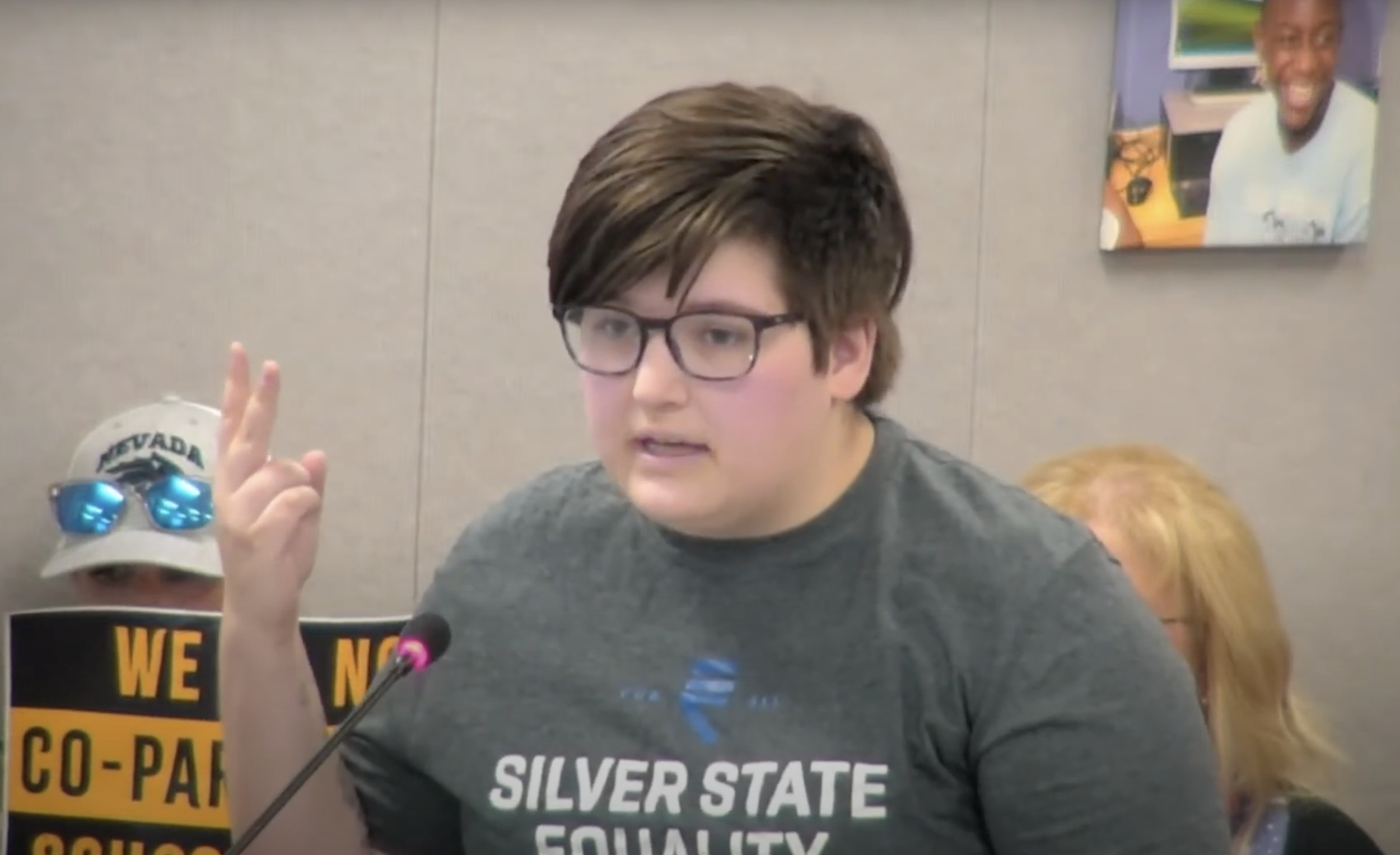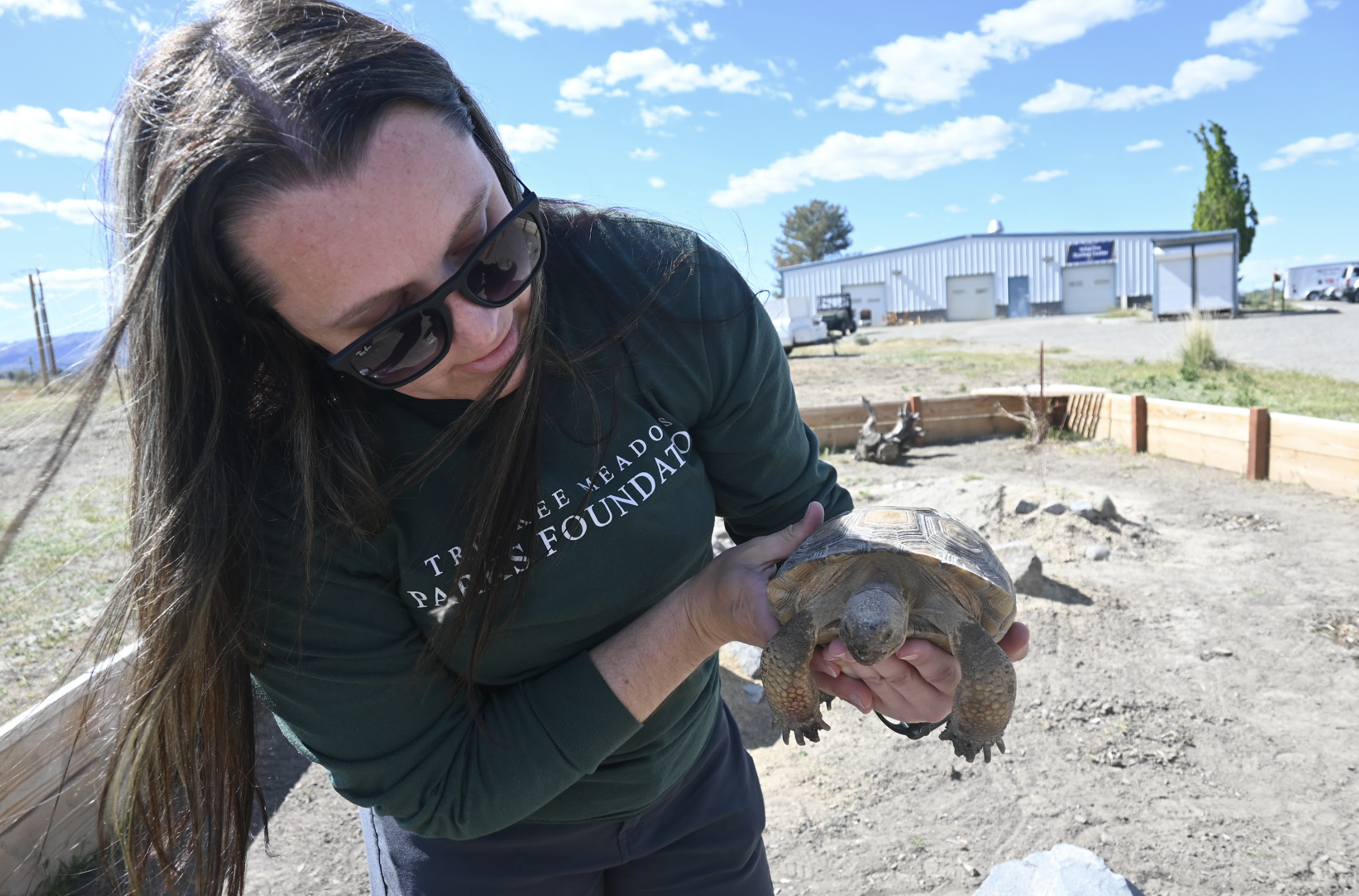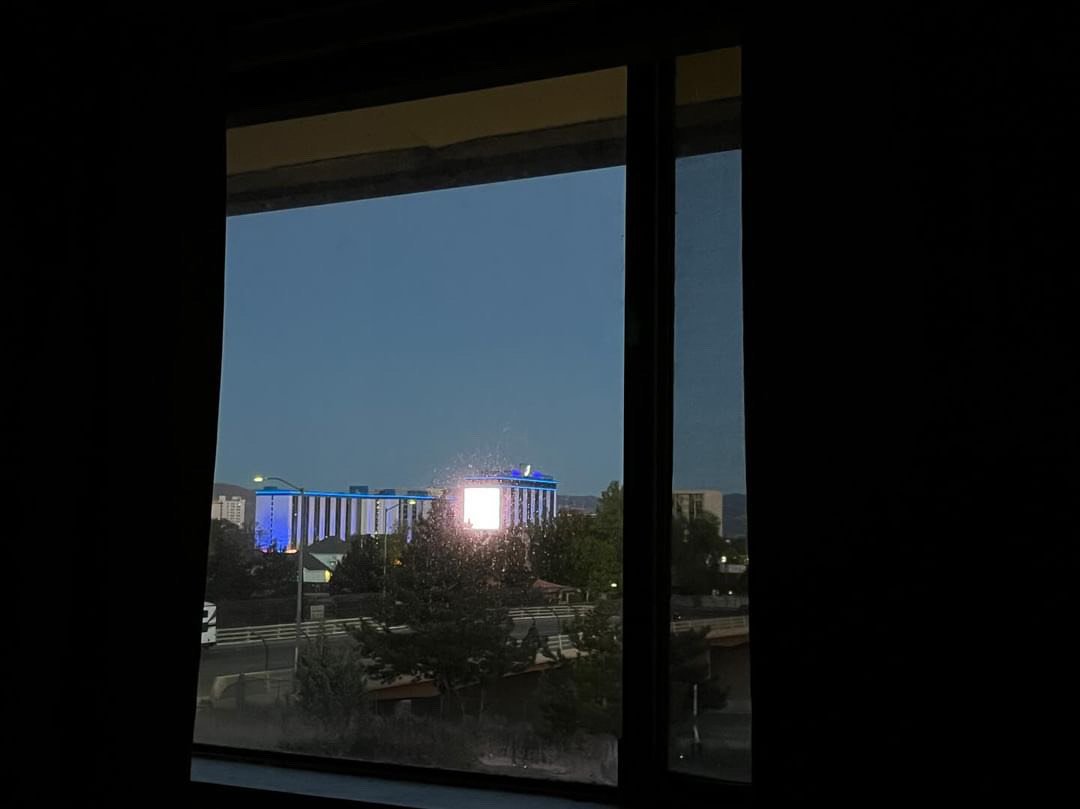A resident of the Reno Housing Authority-run Hawk View Apartments on Steelwood Lane scurries along on a sweltering summer day, confirming he needs to leave his residence soon, as it’s being torn down to be rebuilt much bigger and safer.
The Hawk View location currently has lots of trees, shaded areas, a colorful playground, a convenient picnic spot, all less than a 10 minute walk to a bus stop, a Sonic and a gas station. The RHA says it’s on shaky ground though, and an ability to access private capital has led it to pursue its imminent demolition and double its units with new construction penciled in to be started this fall and completed within two years.
A “relocation plan” was drawn up by the contracted Boston-based HousingtoHome entity last October, but it now feels sudden for residents who haven’t found an alternative just yet, and worrisome for community advocates.
One resident Judith is unimpressed, despite repeated meetings and a unit which was proposed to her as a replacement elsewhere.
“The one unit they gave me to look at was totally not from my preferences I mentioned to them,” she says. “But we went and took a Lyft to check it out but the manager never showed up after waiting there for a half hour by office in this heat. So we get back and mention it to HousingtoHome and they told us we need to look for our own place then. This is supposed to be their job not ours. They want us to move, not us. And what’s really messed up they locked up the 24 hour laundry room the other day so no one can do laundry and with no prior notice either. I don’t think that is fair.”
Judith says a definitive move-out date initially scheduled for the end of June has now been pushed back to the end of July but without the ability to do laundry this uncertain transition phase has becoming increasingly challenging.
She says the pending move is “stressful to say the least,” especially since she suffers from agoraphobia and panic attacks.
Judith says she recently felt threatened to put in an application for new housing, which she finally did at Altitude by Vintage on Sky Valley Dr., without any hope she’ll end up with an apartment there.
She says she suffers from mental disabilities, is on Social Security disability payments, and pays $317 for her unit, or about 30% of her income.
Judith is currently trying to add her mother to her housing application which is complicating the process.
In addition to the help from HousingtoHome, JD Klippenstein, the RHA Director of Development says all costs for each resident’s move is being paid for by the housing authority, including “packing supplies, packing assistance, and then additionally paying for security deposits, the move and moving fees for the new apartments that they are identifying. All of the tenants initially were offered a comparable unit that they can move to,” he said.
Klippenstein said about 24 households have already permanently relocated, 13 already have moving dates pending, and “the vast majority of the remainder have applications and are in the process of attaching the voucher to the unit that they found.”
All will be offered continued rental assistance.
Klippenstein said the RHA is doing a $80 million redevelopment of the Hawk View Apartments due to what he described as “serious foundational issues,” even though it received a City of Reno inspection score of 99 just five years ago.
“The inspection score is related to probably day to day items in terms of things the landlord would be responsible for, for the units, inside the units. So what it reflects is that we did our best to make the property very safe and livable conditions. But it doesn't take into account the underlying structural issues of the building,” Klippenstein said. He says it was built in the early eighties on clay, with shifting foundations since it was constructed.
The late Joyce Cowdin loved the Hawk View Apartments after spending years unhoused and living in motels.
The Director of Development also wanted to make clear in the long run units here will be added in this revamp, going from the current 100 units, to 199, with all of them having attached vouchers or “income targeting.”
“We received funding which really let us leverage the opportunity to reinvest in affordable housing on that site and ensure that those families are taken care of,” he explained. “So it meets this threshold that HUD (the U.S. Department of Housing and Urban Development) provides for obsolescence, meaning that essentially it would be more cost effective to demolish and rebuild versus simply rehab and then continue to deal with the foundational issues.”
The displacement of so many vulnerable residents and the imminent tear down of accessible housing has caught the eye of community advocate Ilya Arbatman, a frequent public speaker at local government meetings.
“Generally, the problematic aspect of larger-scale projects like these is when the actual people they are supposed to benefit are kind of an afterthought,” Arbatman wrote to us. “Sure, RHA is excited because they can add some units and put up new public housing. But in the two years between demolition and future move-in (and that's an estimate - we can assume that things will take longer, as they tend to - the original move-out date was end of June and already it’s been pushed to end of July), those units will disappear completely. What if something happens and the new construction gets stalled? The big bureaucracy public housing model is at its weakest when it makes big decisions like these.”
The mechanism used to operate this turnaround is HUD’s so-called Section 18 Demolition and Disposition which also allows getting access to private capital for a refurbish.
“It is being financed through the low income housing tax credit and private activity bonds, which about 95% of all subsidized affordable housing in the country is built using this,” Klippenstein explained. “So there's a tax credit investor who does own through the ownership entity 99.9% of it. They are a silent partner, though, in the day to day management of the property. The housing authority stays in as the managing member of the new ownership entity.”
But private developers Arbatman says “are not accountable to the public in any way… [They] can bail on a project, declare bankruptcy, change their mind, etc. and leave the people they were allegedly serving with no recourse other than litigation, which is costly and trying for any low-income community. Some recent changes to this law are intended to make this public/private collab easier so RHA can use "Section 18 to demolish or dispose of public housing to help PHAs reposition public housing to a more sustainable financial platform and access private capital,”” according to HUD language he researched,
Klippenstein says the current timeline is to have the new units all “leased up starting fall of 2026,” with a 68-unit building, three other 20 to 30 unit building and several townhomes.
“We wanted to offer a variety of unit types so that folks can find a unit that meets their need and the townhomes in particular we're excited about bringing on also, and have a community building as well,” he said of current plans.
“In terms of the exterior, I would say it's much more modern than what it is, but it doesn't look like it was built in the eighties. It's a much more modern design and I would say on par with most market level market properties,” he said.
He sees the transition process as worth the current effort.
“It’s a really worthwhile investment in the community to both increase affordable housing but also ensure that we have high quality, affordable housing available for decades to come while being able to continue to meet the needs of the current residents,” Klippenstein concluded in our phone conversation.
“We're really excited. It was nearing the edge of the end of its usable life without serious investment. And this is the serious investment that we are able to make,” which includes combining different sources of funding and state loan funding.
Arbatman would like to see more proof of the foundational issues leading to this tear down and access to private capital, including from an unbiased party, a full account of all relocated tenants, and whether all of them do end up with satisfactory housing, and how many people who enjoyed living at these units will get to return.
Judith says she’s been living at Hawk View Apartments with her Dad since 2016 and started really liking some of her neighbors, who she says are equally disgruntled by this looming displacement.
“I’ve been a good tenant, never late on my rent never caused problems but I really feel I wont find a place. The lady down below me is in a wheelchair and they have been looking for places that are upstairs, ok come on how is she supposed to get up stairs you know. I’m having a really hard time finding a place in north Reno where I want to stay and it’s hard,” she said.



























































